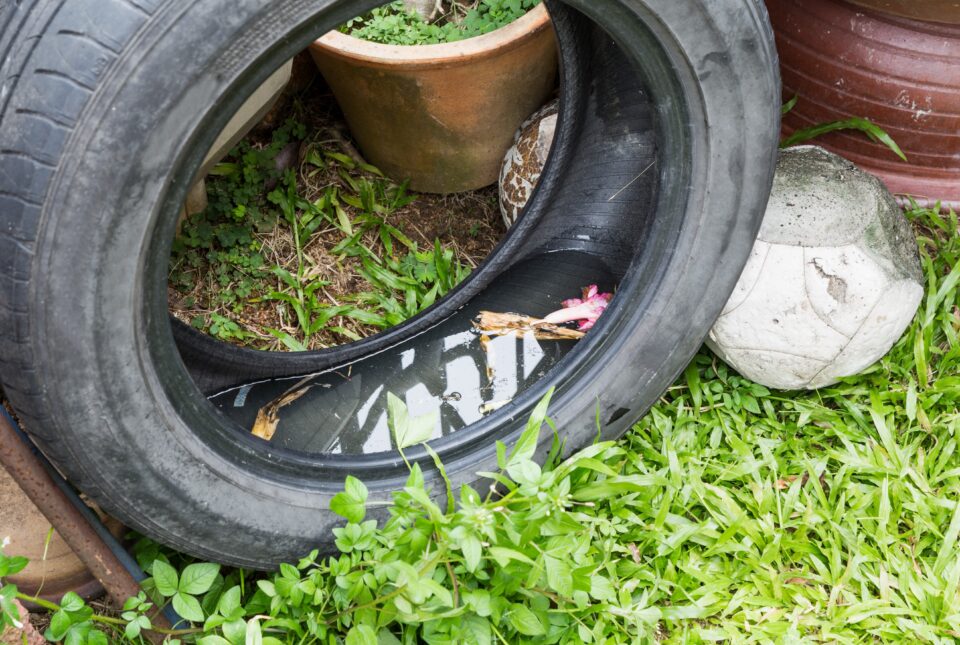Mosquitoes

Mosquito-borne Diseases
Mosquitoes spread many diseases throughout the world. Yellow fever, malaria, dengue fever and chikungunya are common in tropical regions. Encephalitis – an inflammation of the brain sometimes caused by a mosquito-borne virus – is a concern in the Midwest. There are four mosquito-borne encephalitis found in Indiana: Eastern Equine Encephalitis (EEE), La Crosse Encephalitis (LAC), St. Louis Encephalitis (SLE) and West Nile virus (WNv).
Prevention
Mosquitoes require standing water at least 1/4 inch deep for their development. To reduce the risks disease:
- Check for breeding sites. Flush birdbaths once a week. Clean clogged gutters. Empty wading pools. Dispose of containers and old tires collecting water. Fill in tree holes with sand, gravel, cement or paintable foam.
- Maintain swimming pools and spas. Cover the pool when not in use and pitch it in the middle so it does not collect leaves and rain water.
- Aerate ornamental ponds and water gardens. Consider getting mosquito-eating fish for the ponds.
- Limit time outdoors during peak mosquito biting times. Peak times tend to be dawn and dusk.
- Wear loose, light-colored, long sleeves and pants. Cover exposed skin to reduce the chances of getting bitten.
- Use repellents with DEET, picaridin, oil of lemon eucalyptus or IR3535. Check the label and apply to clothing and exposed skin according to instructions.
- Use a hand-fogger or barrier spray when outside for longer periods. Mix 2 tablespoons of malathion with a gallon of water and spray under bushes and in high weeds to kill adult mosquitoes.
- Report dead birds or standing water to Vector Control at 260.449.7459. Dead birds may be a sign mosquito-borne disease is circulating. The department also treats standing water with larvicide to kill mosquitoes before they hatch.
Control
Mosquito control focuses on eliminating potential breeding sites, larviciding to reduce population and placing traps to collect and test for disease.
Vector Control inspects and treats mosquito breeding sites identified in the county each summer. The products used are EPA-approved and environmentally-friendly.
Biological control introduces natural predators into mosquito habitats. Dragonflies, praying mantises, bats and purple martins are promoted as natural controls but have not been shown to significantly reduce mosquito populations.
Gambusia affinis, or mosquitofish, is a top-feeding guppy that controls larvae and pupae in ornamental ponds and garden pools. There are certain restrictions on where mosquitofish can be used since they interfere with other aquatic organisms' lifecycles. Mosquitofish cannot be placed in any Indiana rivers, creeks, ditches or lakes.
The mosquito control program traps and tests adult mosquitoes for disease.
Residents are warned to remove containers and tires or maintain pools to prevent mosquito breeding. Violations not resolved result in legal action outlined in county ordinance.
Mosquito Resources
The Department of Health’s Environmental Services Division – Vector Control & Healthy Homes Program inspects and treats mosquito known breeding sites identified throughout Allen County each summer. The products used to control the mosquitoes in the water are EPA-approved and environmentally-friendly.